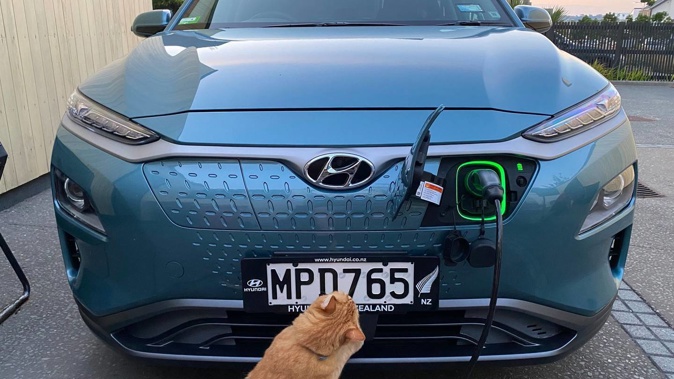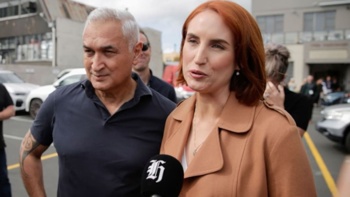
The motor industry says the government's new feebate scheme for electric vehicles will not tempt most New Zealand car buyers.
From next month people buying imported new EVs can get a rebate of $8625 - for used ones it is $3450.
New plug-in hybrids attract a $5750 rebate, while for used hybrids its $2300.
David Boot owns and runs electric vehicle retailer EV City in Christchurch.
He opened the shop yesterday at midday and said the government's Sunday announcement had an immediate effect.
"By about 12.30am we had sold our first vehicle due to the release of the information - finished the day on seven sales, which is probably four more than we would normally do on a Sunday."
On the streets of the capital on Sunday afternoon Wellington man John was doing some window shopping at a car dealership.
Despite owning a hybrid himself he does not support the rebates' move.
"No I think it's a bit silly.
"I think people should pay for what they buy."
But another Wellingtonian Yannick Grundy said it could bring owning an EV within reach.
"I made a commitment to myself a few years ago that my first car would be an electric car.
"And I think this makes it a lot more possible for people like myself to make that a reality."
Abi Askey said for her and other younger people with less money the rebate on second-hand imported EVs was the gamechanger - making popular models like the Nissan Leaf closer to being affordable.
Concern over ignorance within motor trade
But EV City owner David Boot said while the announcement gave the industry a real shot in the arm, it might not last long.
He said car retailers rushing into the EV market would push up demand, and therefore prices, likely swallowing up the savings from the rebate by the end of the year.
And Boot worried ignorant salespeople could tank the vehicles' reputation.
"The wrong vehicle to the wrong person with the wrong information, and all the good work being undone.
"Because you have an awful lot of uneducated buyers buying off a whole lot of uneducated dealers - buying the wrong product and having a terrible experience and telling all their friends how terrible EVs are."
Motor Trade Association chief executive Craig Pomare said the rebate would not be enough for many consumers to make the switch to electric.
He said a buyer can get a new petrol car for about $30,000 or $40,000, whereas new EVs average up to $68,000.
"Even if I take the $8000 subsidy off that, it's still a $20,000 difference on a new EV in some instances.
"So whilst it's a great leap forward there's still a big gap between the price of that new EV and a very, very good model petrol or diesel."
Pomare said most New Zealanders do not buy new cars - so time would tell if the policy would have the desired effect.
He said New Zealand was near the bottom of the queue for EVs which are experiencing a huge international demand.
"Our members who sell cars would love to get their hands on as many EVs as they can.
"But the big manufacturers overseas are saying this side of 2030 it's highly unlikely that we'll be able to produce enough - certainly along the lines of what the government is looking for."
He is disappointed the standard hybrids that are seen a lot around New Zealand, like the ones used by taxi and Uber drivers, are not covered by the rebate.
The government will finance the rebates by slapping a fee on larger gas guzzling vehicles beginning next year.
It will cost $5175 more to buy a new high-emission car, and up to $2875 more for a used import, like a Ford Ranger or a Toyota Hilux.
Waiver suggested for farmers
Federated Farmers national president Andrew Hoggard said there are no EV alternatives available for the heavier types of vehicles farmers and tradespeople use, and there is unlikely to be any for at least four years.
"Basically it's just going to be an additional cost, and ... what I'd like to see is some sort of waiver until there are those alternatives on the market."
He said it was unfair to penalise people who need the vehicles for work.
"But everyone else that wants to buy a double cab Ranger just to drive it into the middle of Wellington and park it up so they look cool, sorry you're going to get slapped with [the fee]."
The scheme is predicted to bring an additional 19,000 clean vehicles into the country's vehicle fleet in the first year of operation.
To qualify, cars must cost lest than $80,000 and have at least a three-star safety rating.
The rebates will also expand from 1 January to include low emission vehicles, not just electric and plug-in hybrids.
Take your Radio, Podcasts and Music with you








